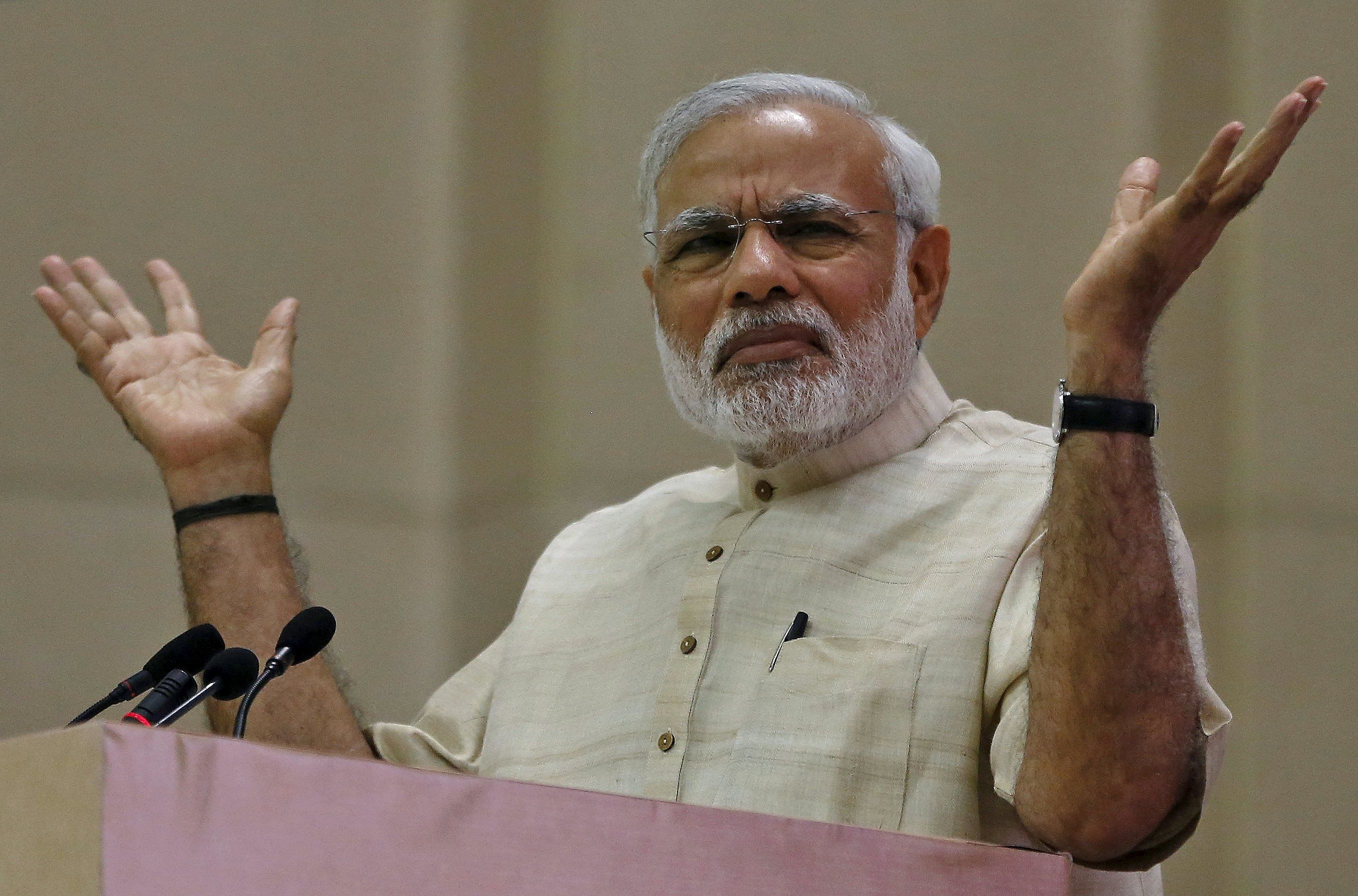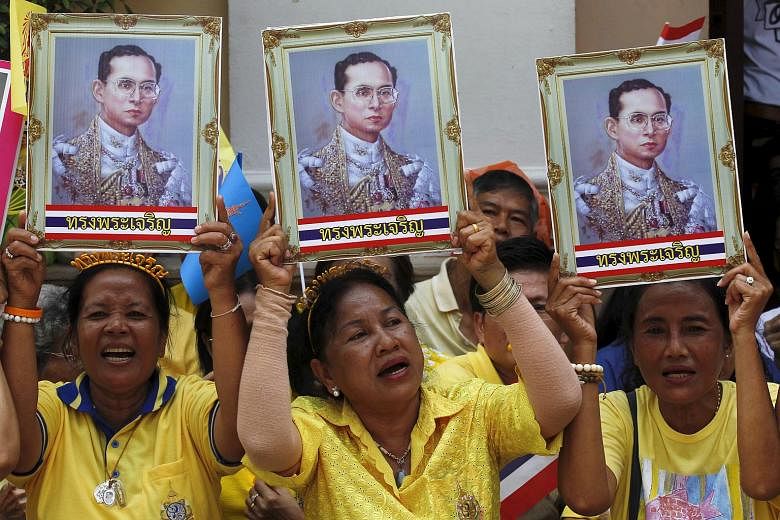1. The folly of hunting lese majeste fugitives abroad
In its editorial on July 21, 2015, The Nation says that wielding the law for political purpose has already damaged the country's record on human rights
The military government is busy squandering what is left of its international credibility by hunting lese majeste suspects who have fled overseas.
The move can do nothing to improve Thailand's reputation, only further tarnish its record on human rights.
Last week Justice Minister General Paiboon Khumchaya caused further embarrassment to the country when he handed a list of three Thai nationals accused of demeaning the monarchy to the French ambassador.
The minister did not seek extradition of the three suspects, whose names have not been made public, but instead merely implied that Thailand wanted them prosecuted.
The justice and foreign ministers are working together on the matter, but both know very well that France and other countries thought to be harbouring lese majeste suspects have no such royalist Lawson their books.
So they are reduced to communicating to foreign diplomats their "desire" that these fugitives be deported and hoping that friendly relations will persuade the countries in question to comply.
It is unfortunate for this government that most other nations around the world have no laws protecting monarchy.
Those that do have them rarely enforce them, or at least the punishment is lenient.
Unlike in Thailand, criticising and even insulting the monarchy is not regarded as a serious crime across most of the world, and it certainly does not warrant pleas for extradition of citizens who have fled overseas.
More importantly, governments all over the world - including those in countries that retain monarchical rule - have long recognised that the lese majeste law in Thailand is routnely enforced for political purposes rather than to protect the revered King.
The charge is applied here mostly to people who criticise the elitist establishment.
Better known as Article 112 of the Penal Code, the law provides legal protection only to Their Majesties the King and Queen, the heir apparent and, as needed, the regent.
Article 112 simply says "Whoever, defames, insults or threatens the King, the Queen, the Heir-apparent or the Regent shall be punished with imprisonment of three to 15 years."
Other members of the Thai royal family are not covered by the law, and neither were the kings of Ayutthaya, Sukhothai, Lanna or Lan Xang.
The international community has come to recognise that the Thai military government is enforcing Article 112 as a means of silencing its opponents.
More citizens have been imprisoned for lese majeste under the current government than under any other administration in modern history, according to a survey by rights-protection group iLaw.
As of the start of this month, at least 51 people had been charged with lese majeste since last year's coup, iLaw found.
In many cases, the charge was applied for acts or statements that made no direct mention of the monarchy, but which officials loosely interpreted as defaming or libelling the royal institution.
Two students who presented a play entitled "The Wolf Bride" at Thammasat University in 2013 were arrested last year and jailed for two years and six months under Article 112.
A person who helped present the play has fled abroad to escape punishment.
It seems that person's name is also on a wanted list that the junta has submitted to a foreign government.
2. Charlatan's misdeeds reflect ills of society
In its editorial on July 21, 2015, China Daily questions how one man managed to fool so many people
Self-proclaimed qigong master Wang Lin has finally been placed under investigation for allegedly being involved in the kidnapping and murder of his apprentice Zou Yong a week ago.
His allegedly illegal activities were first reported more than two years ago, as he was accused of practicing medicine without license, possessing arms without license, bribing officials and swindling people, including lending money at very high interest rates.
He was even reported to have fled to Hong Kong to evade arrest for the crimes he had allegedly been accused of.
Stories and photographs about his close relationship with a number of high officials, including some who are already in jail for corruption, and celebrities such as film stars, and television hosts and hostesses, went viral.
However, to the surprise of many, police in his hometown Pingxiang, East China's Jiangxi province, said they couldn't find any tangible evidence to incriminate Wang for the alleged offences.
As a result, many people assumed that his connections with important people made it impossible for the local police to conduct a genuine investigation.
But this time he is reported to have masterminded the kidnapping of his apprentice over a monetary dispute.
What is really shocking is that Wang could fool so many people, including officials and celebrities, into believing in his magical powers.
The tricks he used such as conjuring up snakes are what charlatans normally use to fool people. And the stories about how he had cured some people of their serious diseases were often made up.
Yet even officials and celebrities, who are supposed to be knowledgeable people, fell for his tricks, and his fame and connections grew by the day.
He used his proximity to celebrities and officials to establish more connections, extend his influence and deepen his coffers.
His "success" was phenomenal. It is difficult to know whether the majority of celebrities and officials really believed in his magic powers or just used his circle to widen their own networks for ulterior motives.
Maybe it was just a game for both parties.
But it is more than necessary for police to dig out foolproof evidence not just on his alleged involvement in the criminal case, but also on all the crimes he has allegedly committed.
The true story of how he accumulated a fortune could serve as a warning to all people.
3. Aura of Modi government dissipates

In its editorial on July 20, 2015, The Statesman says the government seems to be losing its clout.
The extent to which the aura of Modi sarkar has dissipated is evident from the Prime Minister's seeking to actively involve his National Democratic Alliance partners in the exercise to shore up his defences ahead of the monsoon session.
A year ago there was so much bombast over the "clout" of the BJP's 282 Lok Sabha members that the allies were deemed of essentially notional value.
That even after a relatively successful budget session there was need for the extensive "strategising" over the last few days only confirms a decline in the government's self-assessment of its authority.
A major concession being that Parliament is more than a numbers game: there is no threat to the BJP's majority, the challenge is triggered by its own shortcomings ~ the "backing" of the wily but dubious Lalit Modi by Sushma Swaraj and Vasundhara Raje, the Vyapam scam, and alleged misdeeds by a couple of ministers in its state governments, and Mr Narendra Modi's silence have put the party in the proverbial dock.
The other realisation being that a substantial majority in the Lok Sabha does not negate the impact of the numbers crunching the other way in the Rajya Sabha ~ despite some Speaker-assisted ploys to tweak rules and conventions.
What the government had projected as major economic initiatives ~ GST and land acquisitions to cite a few examples ~ will have more than their own shortcomings to be addressed.
The "weight" of the controversies mentioned earlier could cripple the initiatives.
Just what the BJP means by an "aggressive" strategy will soon unravel itself, terms like "brazening it out" and "closing ranks" are admission of the "bucking" of the moral high-horse on which Mr Narendra Modi rode up Raisina Hill.
If its communal "colour" had invited problems till a few weeks ago, questionable actions by Swaraj, Raje, and the Vyapam scandal have provided the fire-power that has already "blackened" the all-important corruption-free projection.
The Opposition may be thrilled, the contemporary version of the chamchas of 40 years ago hail a re-activated Rahul Gandhi as the detonator, but the competence of those parties is equally on test.
Even if they do join forces they will have to go beyond disrupting the House to register true success.
For like walk-outs and adjournments of earlier times, the law of negative returns is setting in on the "tactic" of rendering the House non-functional.
And waving placards from the well and similar actions no longer impress.
"Nailing" the government would require the marshaling of evidence, articulate presentation of it and effective exploitation of parliamentary devices.
Merely disrupting the House has lost its sting. Alas, both the Opposition and the government suffer from a paucity of parliamentary skills ~ "thunder" does not prove enlightening.

